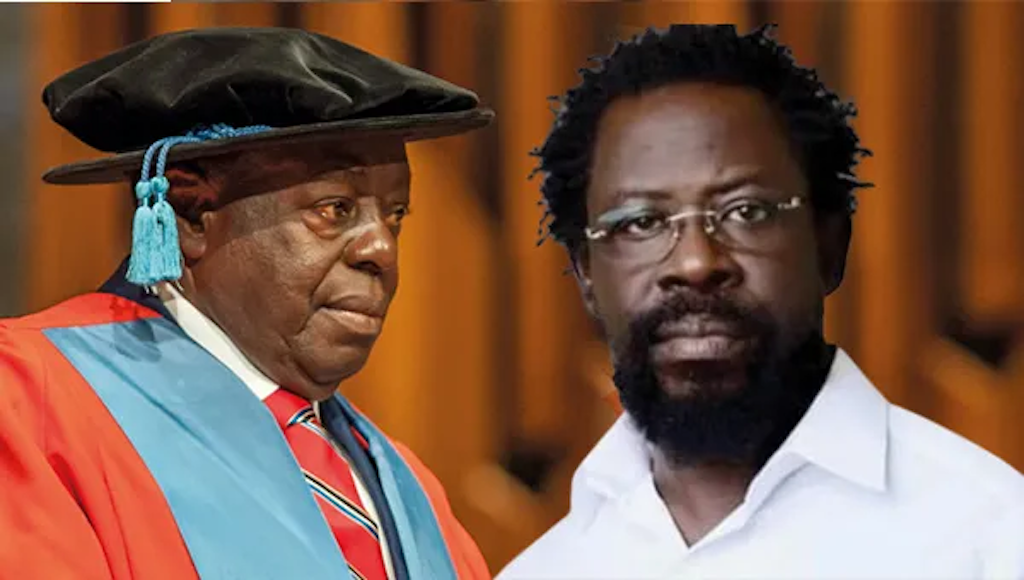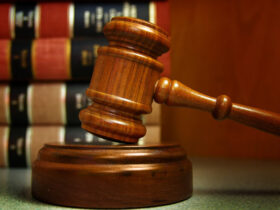The Legal Practitioners Disciplinary Committee (LPDC) has adduced reasons why it cannot revoke the license that allows the embattled author and activist, Dele Farotimi, to practice law in Nigeria.
The legal body held that it lacked the requisite jurisdiction to investigate issues related to the allegations of criminal defamation and professional misconduct brought against Farotimi by the law firm of Chief Afe Babalola, SAN, Emmanuel Chambers.
In its petition, the law firm urged the LPDC to debar Farotimi by removing his name from the country’s list of legal practitioners.

In the 90-page petition dated December 6 and signed by a partner in the firm, Mr. Ola Faro, it was alleged that Farotimi violated certain provisions of the rules of professional conduct for lawyers in his contentious book titled “Nigeria And Its Criminal Justice System.”
Specifically, Farotimi was accused of acting in breach of Rules 1, 15(1), 15(2b), 15(3a), 15(3g), 15(3i), 15(3j), 26(1), 27(1), 30, 31(1), (2) and (4) of the Rules of Professional Conduct 2023 “by bringing the entire judiciary in Nigeria into disrepute with his unfounded allegations of corruption against eminent justices of the Supreme Court of Nigeria, judges of the High Court of Lagos State, Aare Afe Babalola, SAN, Olu Deramola, SAN, and Ola Faro, Esq., and the entire chambers of Afe Babalola & Co. in his book.”
Insisting that Farotimi engaged in conduct that was unbecoming of a legal practitioner by making false accusations against the Supreme Court and the legal profession, the petitioners further alleged that he participated in unlawful conduct by bribing judicial officers and gaining unlawful access to a judicial officer.
“He joined his clients in committing misconduct and breach of law with reference to judicial officers by having unlawful access to a judicial officer. He gave service to his client, which he knows is capable of causing a breach of law and disrespect and corrupting a judicial officer. He knowingly made a false statement of law and facts with respect to a case already decided by the Supreme Court.’
“He assisted his clients in a conduct that he knows to be illegal and fraudulent. Knowingly engaged in illegal conduct in the course of his practice as a legal practitioner. Treated his fellow lawyers without respect, fairness, consideration, and dignity, allowing ill feelings between opposing clients to influence his conduct and demeanour by distorting the facts of a case in the cause of his practice as a legal practitioner.
“Failed to observe good faith and fairness in dealing with other lawyers in respect to a case already decided by the Supreme Court. Conducted himself in a manner that obstructed, delayed, and adversely affected the administration of justice by taking steps to frustrate a decision of the Supreme Court for his personal benefit and the benefit of his client, who lost at the Supreme Court.
“Treated the court, particularly the Supreme Court, without respect, dignity, and honour by using uncouth, unprofessional, undignified, and offensive language against the Supreme Court and the justices of the Supreme Court. Made defamatory statements against judicial officers rather than making a complaint to appropriate authorities.”
It was the contention of the petitioners that the author “indicated that he discussed a pending case with a judge trying the case in the absence of an opposing lawyer. The contravention of these rules by the Respondent (Farotimi) prompted this petition to protect the dignity of the legal profession and the dignity of the court as the temple of justice and to uphold the standards of the legal profession.”
They further noted that some statements in the book had the potential to inflame the legal profession and society, maintaining that the corruption allegations were made to discredit the Nigerian judiciary and to subject the law firm to ridicule so as to damage its hard-earned reputation and financial standing.
However, the LPDC, in its report marked B8B/LPDC/1571/2024, said it was satisfied that all the offences that were listed by the petitioners occurred in Farotimi’s capacity as an author and not during his practice as a legal professional.
enjoined the aggrieved parties to seek redress in regular courts.
“The publication is an intellectual property and not a conduct or action committed while practising as a legal practitioner.
“All aggrieved parties who find the publication ‘defamatory’ should ventilate their grievances through the regular courts,” the LPDC, which is led by Justice Ishaq Bello, added.
It will be recalled that Farotimi had since been arraigned before the Federal High Court in Ekiti State and an Ekiti State Magistrates’ Court, Ado-Ekiti, for alleged criminal defamation.
(Vanguard Newspaper)
Follow the Parallel Facts channel on WhatsApp: https://whatsapp.com/channel/0029VaCQSAoHgZWiDjR3Kn2E








Leave a Reply